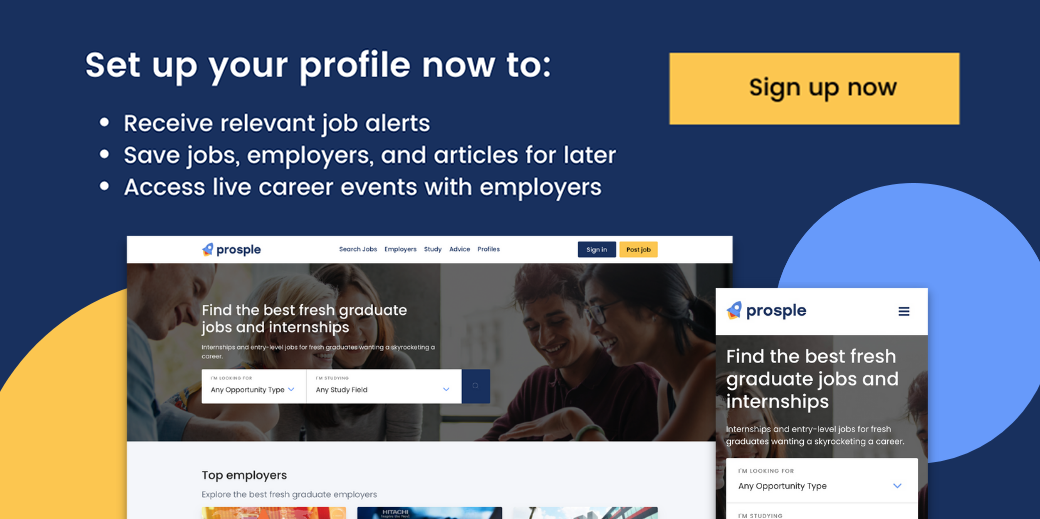How to answer tricky interview questions: why do you think you will be successful in this job?
Jaymes Carr
Tricky questions are supposed to be unpredictable, right? So what’s tricky about a question that’s all but inevitable? Of course, the interviewer will ask why you think you’ll be successful in the job: what motivation could they possibly have for hiring somebody who might not be? However, don’t let the familiarity of this question lull you into a false sense of security: if it’s posed to every candidate, then you’ll have to work harder to ensure you stand out. Read on to learn how.
What makes this a tricky question?
This apparently straightforward question—”why do you think you’ll be successful in this job?”—asks you to consider three separate things, each of which may be more complex than you expect.
First, why do you think you will be successful in this job? What are the special talents, experiences, passions, or attributes that mark you as an outstanding candidate?
Second, what does ‘successful’ mean in the context of the job for which you’re applying? Would it mean hitting sales targets, generating breakthrough research papers, solving technical problems, or something else?
Finally, why are you particularly well-suited to this job as opposed to similar positions at other companies, or a different profession entirely?
Advice to help you in interviews
Graduates ask: what are behavioural interview questions
Graduates ask: what are situational interview questions
30+ Questions to Ask at Internship & Grad Job Interviews
How to be the difference in your interview and assessments
What is the interviewer really asking?
On the surface, the interviewer is asking you to show off a bit: this is a golden opportunity to talk yourself up and draw attention to the qualities that will make you a valuable employee. However, that won’t be enough on its own, because the interviewer is also trying to gauge how serious you are about the role you’re applying for.
Serious candidates, the reasoning goes, will know as much as they can about the role, and their answer will possess the two qualities that often get successful applicants over the line: specificity and relevance. The question could, therefore, be rephrased like this: “What are your best specific attributes and how are they relevant to the specific demands of success in this role?”
Here are some other things the interviewer will consider when evaluating your response:
- How informed are you about the position? Do you understand what it involves? Do you know who you’ll be working with? Do you have a good sense of what your performance criteria will be?
- Are your goals congruent with those of the company? Will you aim for a measure of success that benefits both you and your employer?
- Do you care enough about the job to know what distinguishes it from other similar positions? Is it the people? The focus on a particular field of research? The training opportunities?
Crafting a strong response
Start with the cheat sheet distributed by almost all employers before an interview: the position description. Your goal is to match your skills, experiences or attributes to the job requirements, and then go one step further by explaining how this match will lead to success. It bears repeating: keep your response specific and relevant. For example, a candidate for an accounting role might offer the following answer:
Interviewer: Why do you think you will be successful in this job?
Candidate: During my accounting internship, I was able to rotate through positions in accounts payable, accounts receivable, accounts served, and auditing. Each role taught me valuable lessons, but perhaps the most important thing I learned is the importance of interpersonal relationships. I’ve been able to collect a month’s worth of back payments by developing a solid relationship with a past due customer.
I also enjoy being part of a team that works together to get the job done. The position you’ve advertised requires somebody with excellent communication and accounting skills, and I believe that, as a person with both of those attributes, I’ll be able to deliver exceptional results, even while serving your broad range of technology clients.
Here is an alternative response, this time offered by a law graduate:
Interviewer: Why do you think you will be successful in this job?
Candidate: Ever since I took my first commercial law class, I knew I’d found my niche. I have a particular interest in the legal aspects of mergers and acquisitions, and your firm’s specialisation in that area is one of the key things that drew me to this role. During my internship at a Big Four law firm, I was able to work alongside a senior partner as he shepherded a fledgling company through its initial public offering and subsequent acquisition by a larger competitor.
I learned how important it is to possess not only a strong grasp of the law, but an ability to communicate effectively with clients, some of whom are probably anxious as they go through the most complex business deal of their adult life. My marks in Commercial Law II demonstrate that I’m committed to mastering the legal intricacies of this role: but I believe that my interpersonal skills too will help me flourish in this role and provide stakeholders with an informed and accessible point of contact.
Tricky interview questions about your future success can be challenging to answer — prepare well and your interview is likely to go more smoothly.
Popular searches
Business & Commerce Graduate Jobs & Programs
Finance Graduate Jobs & Programs
Banking Graduate Jobs & Programs
Consulting Graduate Jobs & Programs
Graduate Jobs & Programs in Melbourne
Graduate Jobs & Programs in Sydney
Graduate Jobs & Programs in Brisbane
Graduate Jobs & Programs in Perth
